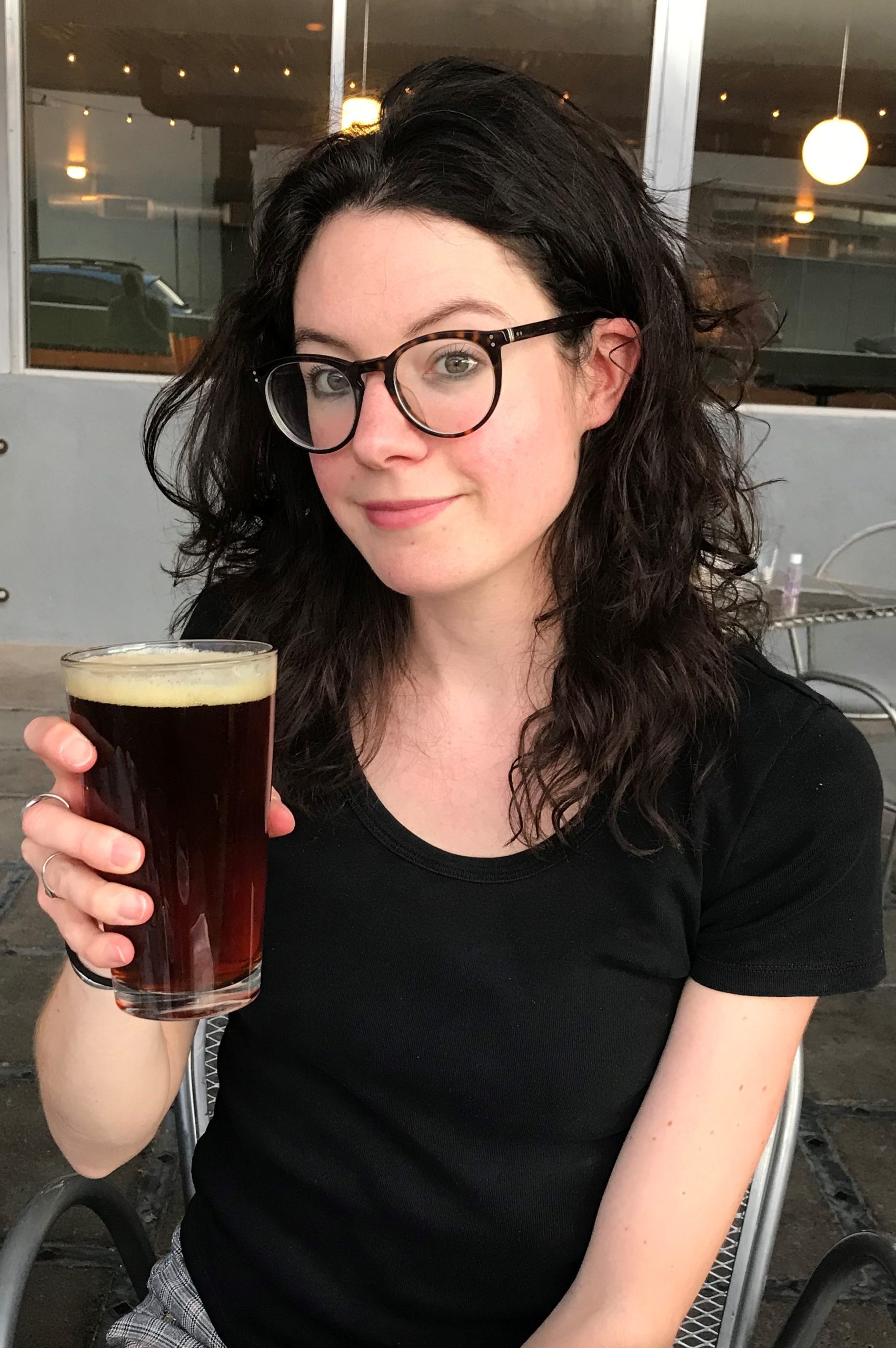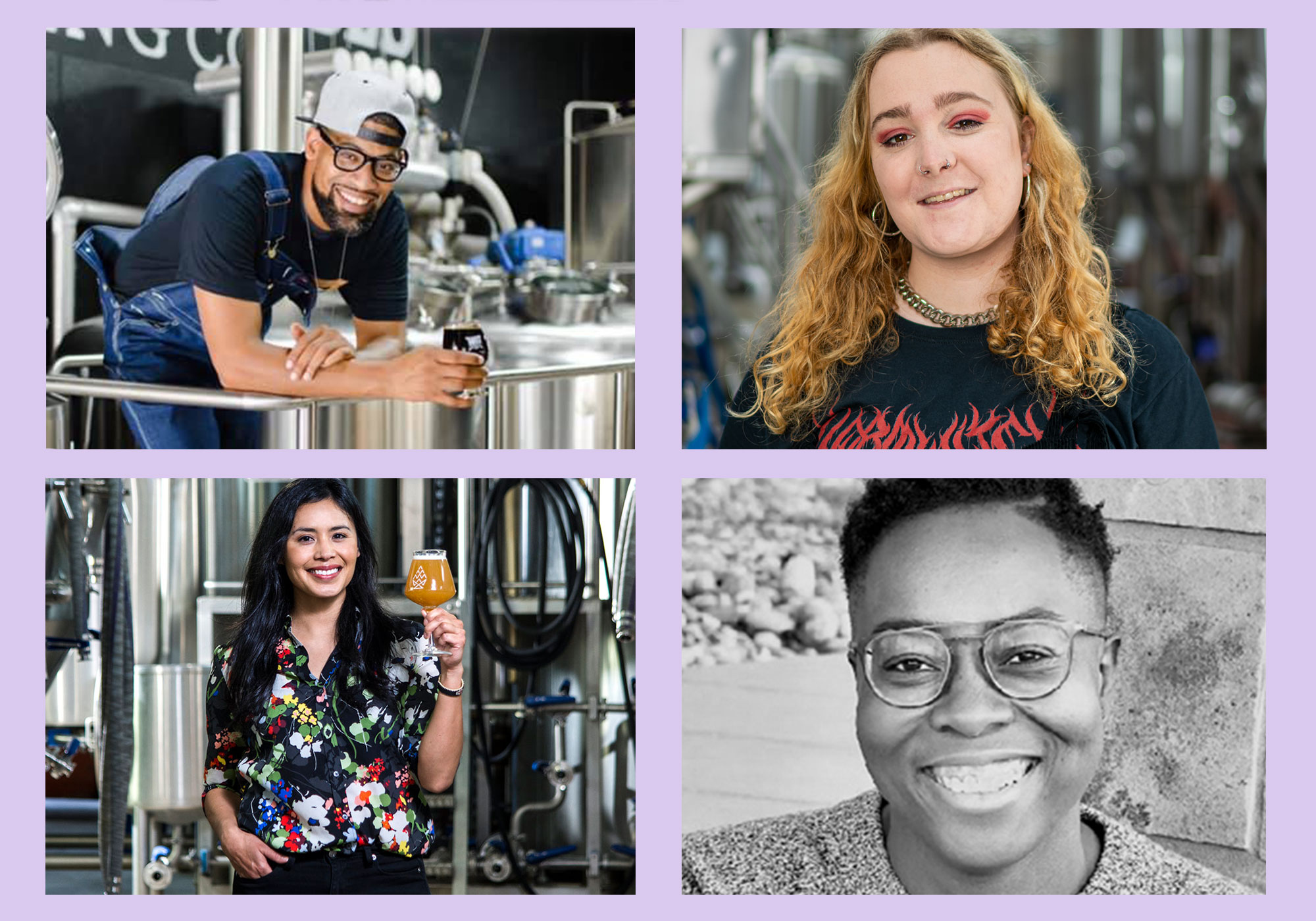Shop
Craft Beer Scholarships Can Make the Industry More Diverse and Equitable
Scholarships in the craft beer industry are playing a major part in changing the beer scene.
“Many breweries require either relevant experience or relevant training when they consider applicants” says Garrett Oliver, Brewmaster at Brooklyn Brewery, and editor-in-chief of ‘The Oxford Companion to Beer’. “Given the paucity of BIPOC in brewhouses/production, requiring experience sets up a Catch-22.” One of the biggest challenges in the beer industry today is the fact that careers within it sometimes remain inaccessible to individuals from racial minorities and other marginalized social groups. Fortunately, some inspiring individuals and organizations are working on removing this inequity.
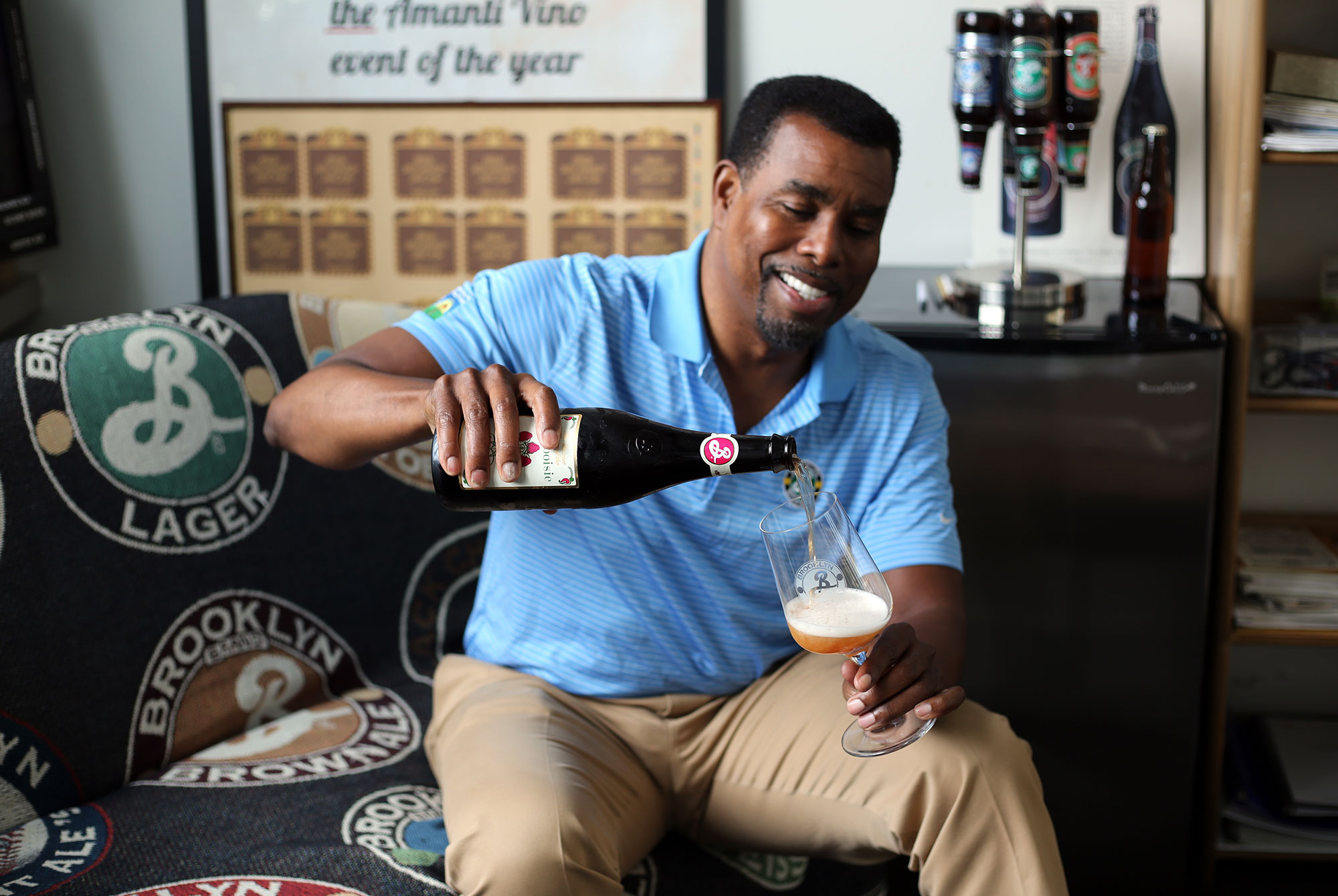
Garrett Oliver
“Scholarships are a ‘toggle switch’ which are almost guaranteed to work when it comes to brewhouse placements,” says Garrett. He founded The Michael James Jackson Foundation (MJF), a grant-making organization focused on funding scholarship awards to Black, Indigenous, and People of Color within the brewing and distilling trades. The MJF aims at building a more equitable and dynamic industry.
The foundation is named for the British beer writer, whose books sold more than three million copies in eighteen languages, and who was himself a passionate social justice advocate.
“The reception for the MJF has been very gratifying,” says Garrett. “We’ve seen truly broad support from both the media and the public, with more than 400 donors funding us at more than $300K. As a result, our work is underway.”
Creating opportunities from crisis

Photo courtesy of Crowns & Hops
The MJF is not the only initiative to spring up during the COVID-19 pandemic. During the summer, BrewDog and Crowns & Hops worked together to launch the 8 Trill Pils Initiative, which seeks to close the racial gap in the craft beer industry by creating opportunities for Black-owned businesses. The “8 Trill Pils Grant” is a $100,000 development fund that will be awarded to several Black-owned craft beer brands to assist them in business development and growth.
Meanwhile, in New Mexico, Bosque Brewing is creating opportunities for new people to get into the local beer industry, which all started with tips donated by customers at the beginning of the pandemic.
“It’s a marathon, not a sprint, so we are getting set for the long haul.”
Bosque Brewing matched customer donations and created the Represent New Mexico Scholarship Fund. The scholarship is open to individuals from disenfranchised groups including, but not limited to race, sexual orientation, physical ability, or age.
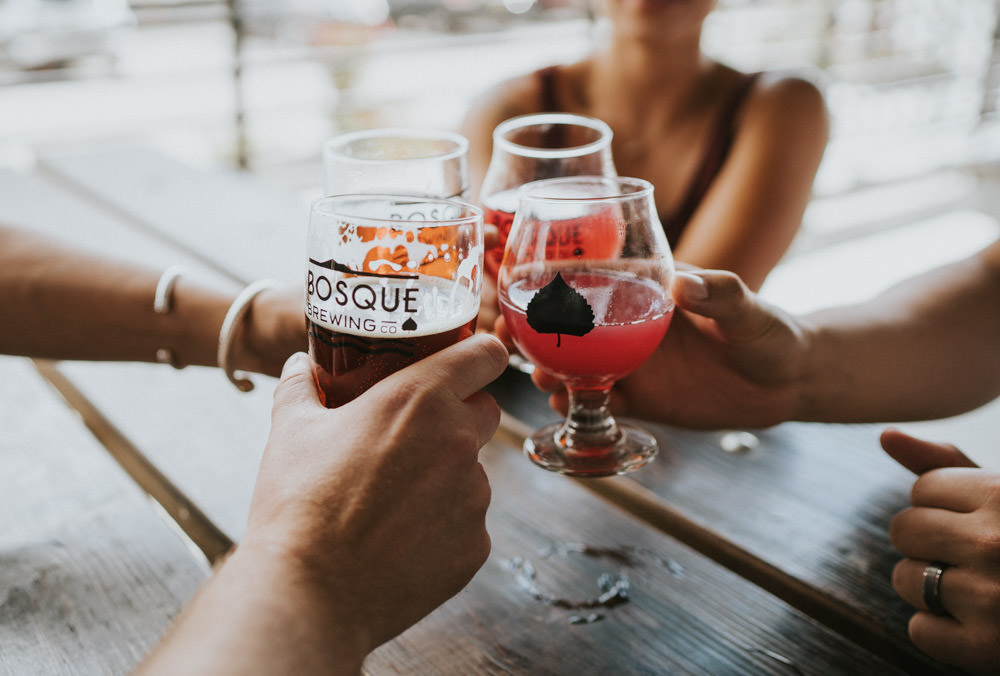
Photo courtesy of Bosque Brewing
“Our goal is to attract individuals who may not have ever considered brewing as an opportunity for them and provide them the resources and financing to get them started,” says Jess Griego, Chief Experience Officer at Bosque Brewing. The scholarship offers awardees $1000 towards the Central New Mexico Community College Brewing & Beverage Management program or the New Mexico State University Chemical Engineering Brewing Minor Program. The first five scholarship recipients recently began their courses.
Jess notes that the committee itself is composed of a diverse group of individuals who have each experienced their own barriers within the beer industry. “(We wanted to) make sure that the individuals on the scholarship committee also have a voice and are able to bring forward their experiences and different barriers they have seen in the industry and in their lives, in a way that creates fruitful engagement and relationship building with the scholarship applicants,” Jess says.
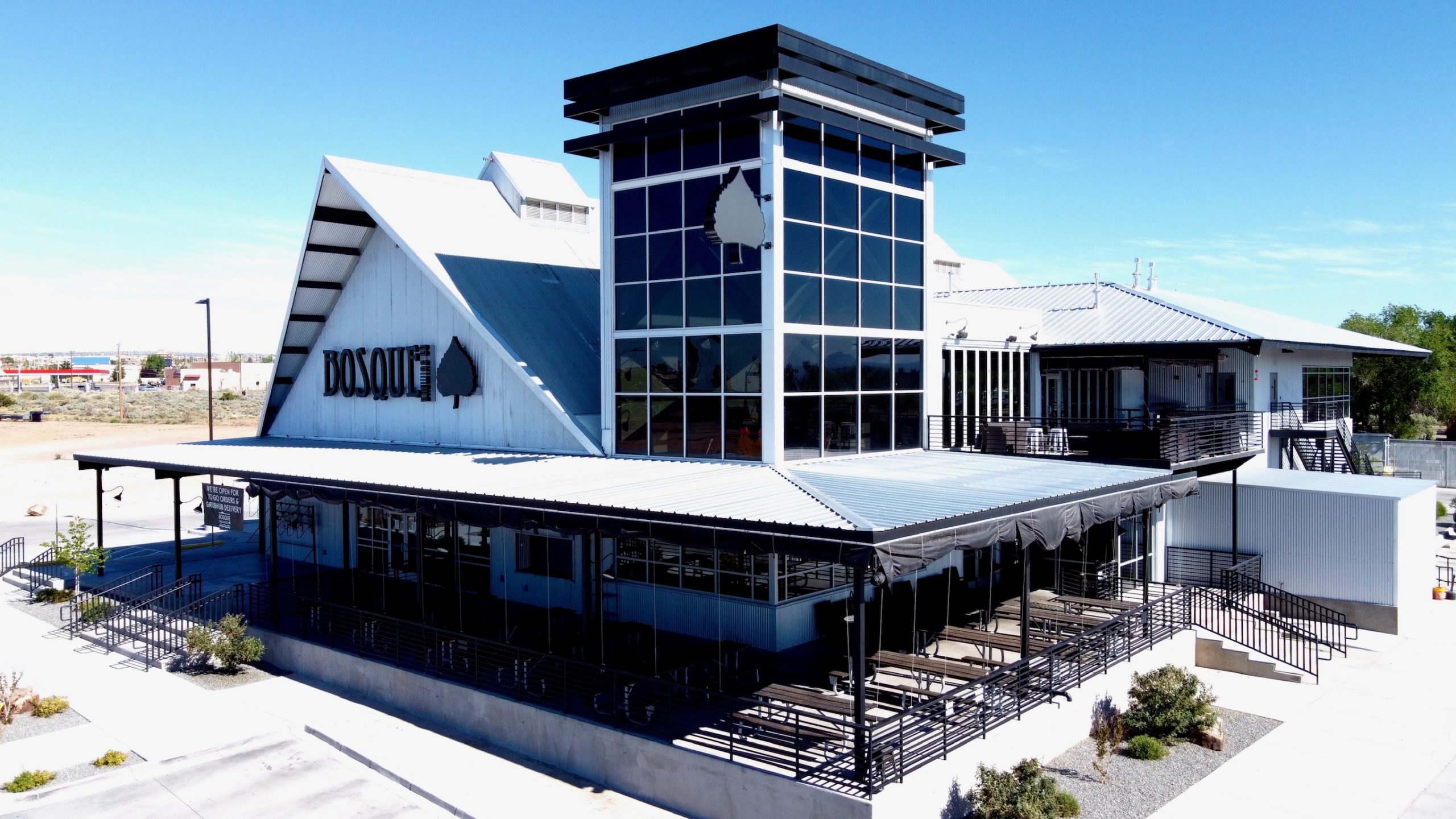
Photo courtesy of Bosque Brewing
Excitingly, the Bosque Brewing team has a plan in the works to keep in touch with the scholarship awardees, including inviting them back to the brewery to create a collaborative beer. The charitable beer release would then create a channel to continue to raise proceeds that will be funneled into further scholarship opportunities.
Building bridges
A more equitable beer industry starts with giving access to people who have not typically been present in those spaces. Eugenia Brown (@blackbeerchick on Instagram) is the founder of the Road to 100 initiative that funds Cicerone Certified Beer Server courses for black women. She explains that she first became inspired to kick off the project when she was reading an article about tokenism in the craft beer industry.
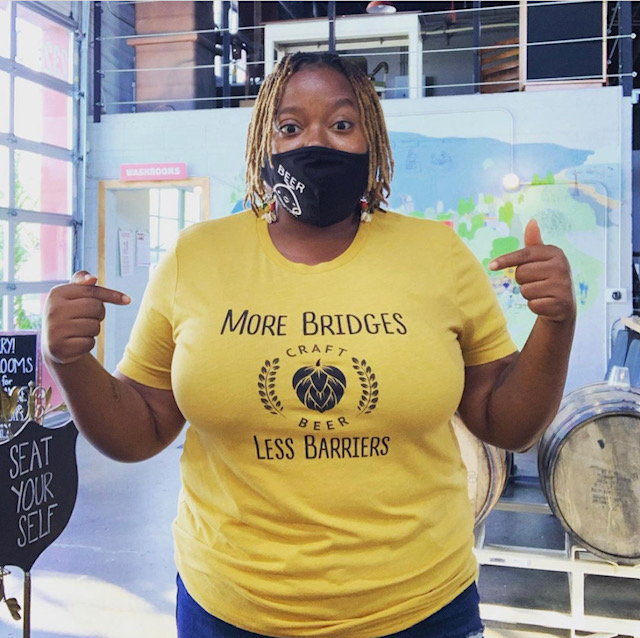
Photo courtesy of Eugenia Brown
“I realized that, subconsciously, I had kind of been contributing to that tokenism by never asking ‘Well, why was I the only one?’”
Around the same time, she started a job in a new brewery. “One of the things that initially stood out to me was that when we went to training, there was another black woman in the space with me,” Eugenia says. “Quite frankly I was shocked. I had just gotten so used to being the only one. But then a part of me was really excited just to have someone in the room that looked like me.”
Eugenia explains that her experience encouraged her to consider why she has so frequently been the only black woman in a craft beer space, and she wanted to contribute to making a change. She designed t-shirts with the slogan “More Bridges, Less Barriers” to help raise money to fund fifty Certified Beer Server exams, and Cicerone stepped up to match Eugenia’s efforts, bumping up the total to one hundred exams.
Eugenia says that she has been shocked by the amount of support that she has received from within the industry. She also highlights that for a while, the beer industry was focused on diversity and inclusion, but that the conversation is now changing to also include considering equity, which is a key part of making a real difference to breaking down barriers.
“With equity, you have to address different things like access to financial capital, access to opportunity, access to information,” Eugenia explains.
“A part of me was really excited just to have someone in the room that looked like me.”
Similarly, Garrett shares a shocking statistic that drives home just how much harder it can be for some individuals to access opportunity. “Here is a fact most Americans don’t know – African American families and individuals have just 10% of the assets of European Americans. 10%. So what that means, when a brewing course costs, say, $9,000, is that African Americans usually simply do not have the financial capacity to pay for it. It’s very simple. We are removing that barrier for our awardees.”
Brighter days ahead
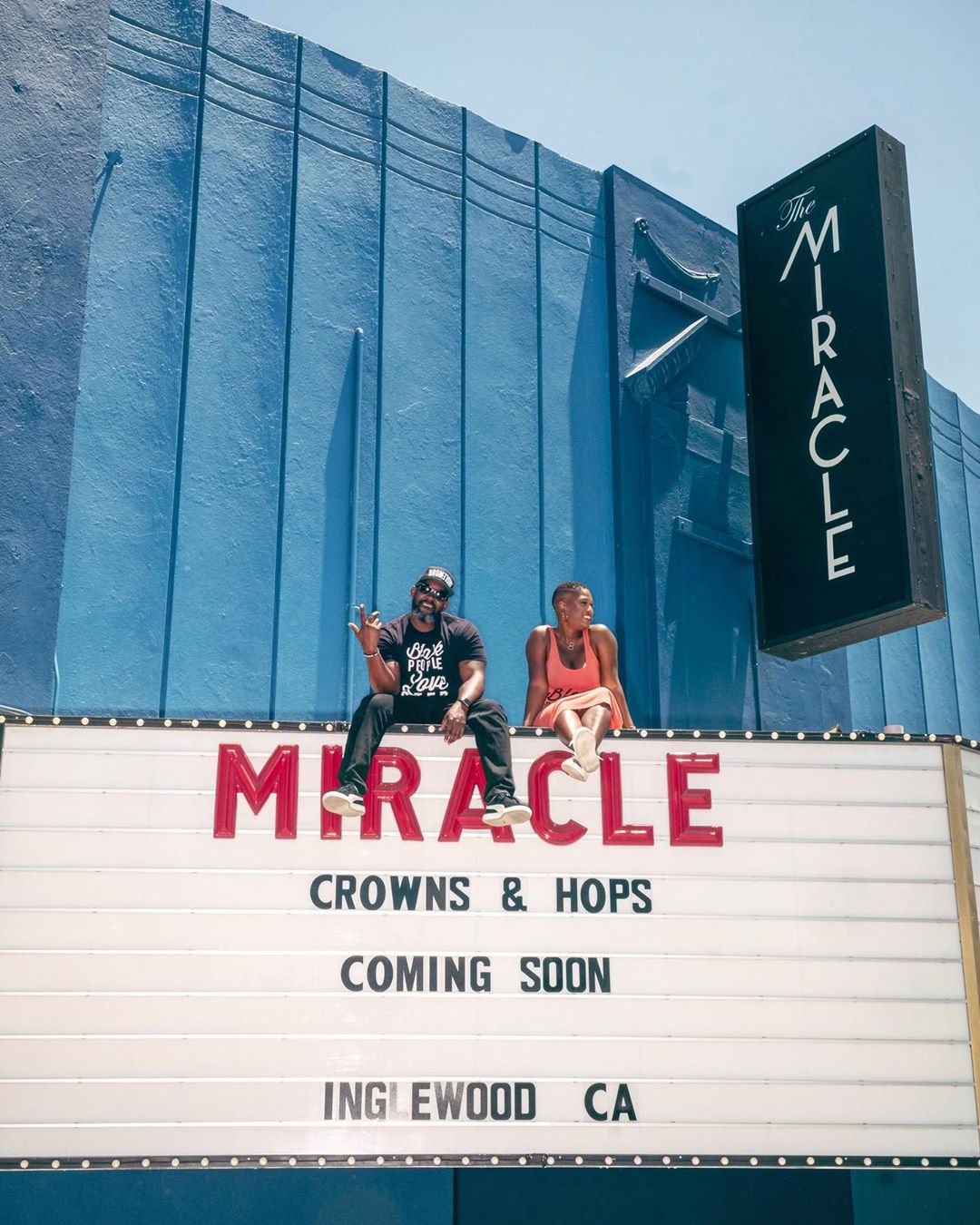
Photo courtesy of Crowns & Hops
It has been a dark twelve months for the brewing industry due to the COVID-19 pandemic, but scholarship and sponsorship programs like those that Garrett, Eugenia, and Jess, as well as Crowns & Hops and BrewDog, have worked hard to create are demonstrating how everyone can get involved to affect positive and lasting change in the beer community.
“It’s a marathon, not a sprint, so we are getting set for the long haul,” says Garrett. “But we do believe that we will make a notable difference and when our efforts are combined with those of dozens of other organizations, we will see meaningful change.”
Liked this article? Sign up for our newsletter to get the best craft beer writing on the web delivered straight to your inbox.



